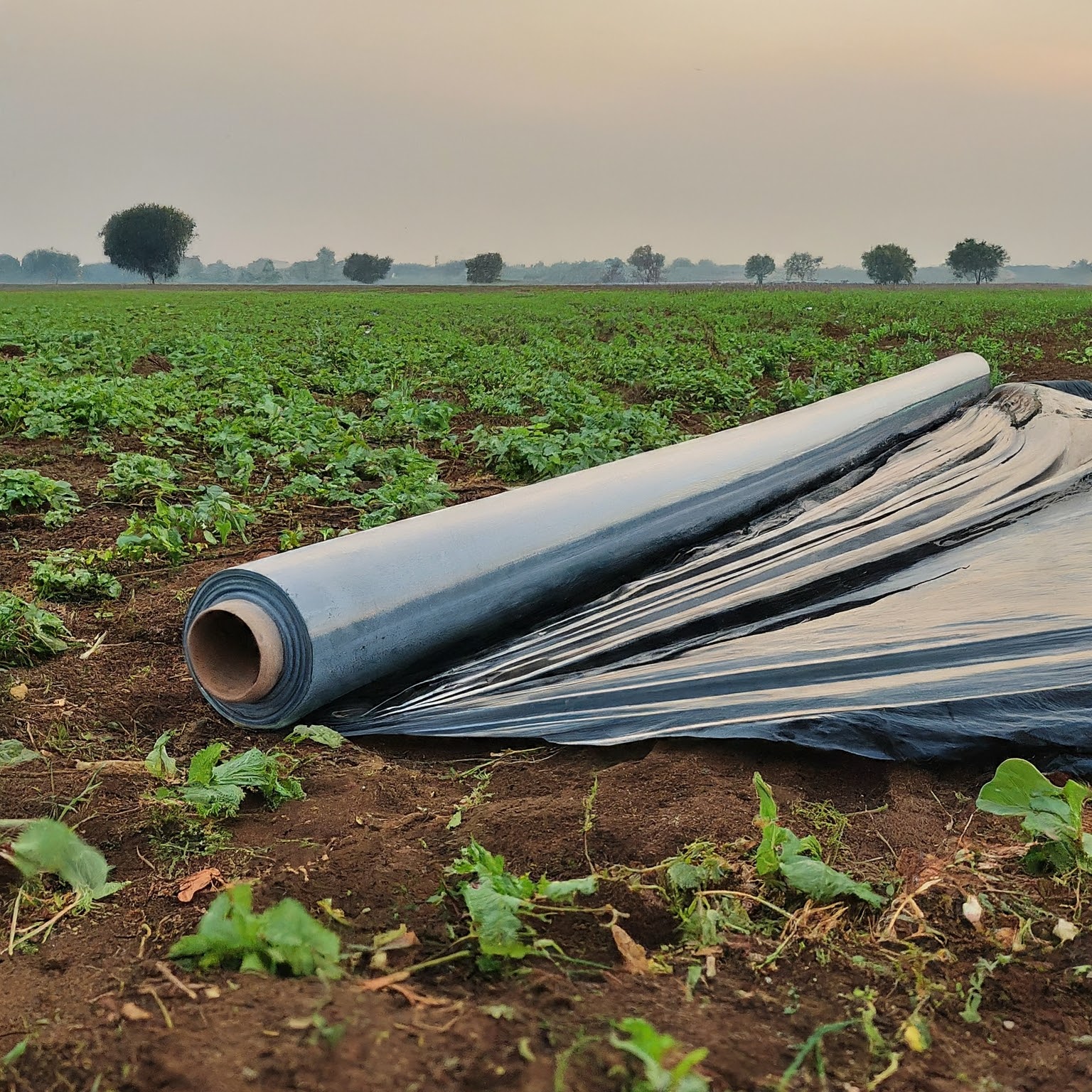Mulch film is a protective plastic sheet used in agriculture to cover the soil surface, helping improve crop growth and yield. Made from materials like polyethylene, it acts as a barrier that retains soil moisture, regulates temperature, and controls weed growth. Mulch films are available in different colors (black, silver, clear, and white) to cater to various agricultural needs, providing customized solutions depending on crop type, climate, and soil conditions.
- Benefits of Mulch Film:
- Moisture Retention: Mulch film reduces water evaporation, ensuring consistent soil moisture levels. This decreases the need for frequent irrigation and promotes healthier root development.
- Weed Control: By covering the soil, mulch film prevents sunlight from reaching weed seeds, effectively suppressing weed growth and minimizing competition for nutrients with crops.
- Soil Temperature Regulation: Mulch film helps maintain optimal soil temperatures, keeping it warmer during cold seasons and cooler during hot periods, which fosters healthy plant growth.
- Enhanced Crop Quality: Mulch film minimizes soil-to-fruit contact, reducing crop contamination and improving the overall quality and appearance of produce.
- Pest and Disease Reduction: Some mulch films, such as silver or white varieties, can repel insects and pests, reducing the need for chemical treatments and promoting healthier plants.
- Increased Yield: By improving moisture management, temperature control, and weed suppression, mulch film boosts crop yield and promotes earlier harvesting.
- Soil Erosion Prevention: The protective layer of mulch film helps prevent soil erosion caused by wind or water, preserving the soil structure and its nutrient content.
Overall, mulch film is a highly effective tool for modern agricultural practices, enhancing productivity while conserving water and reducing the need for herbicides.



